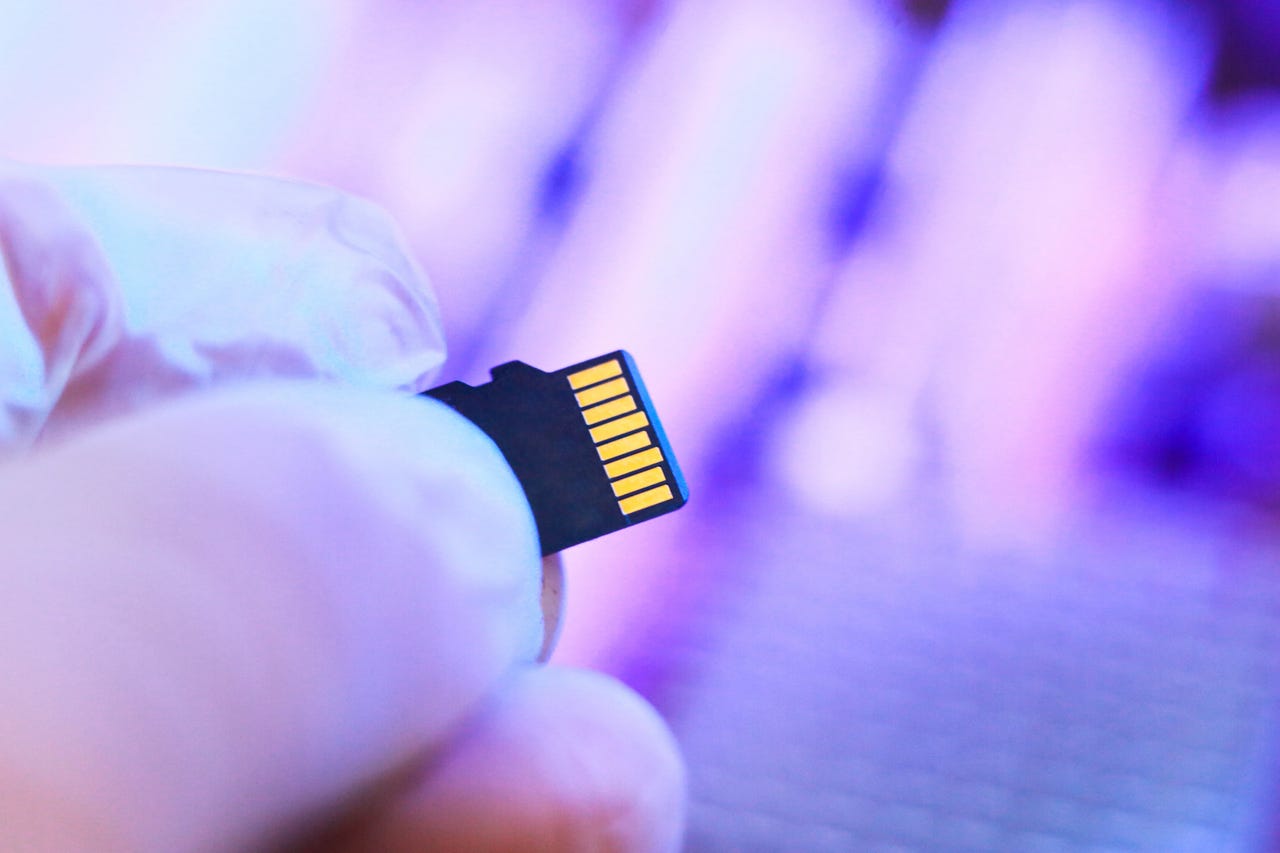































 Getty Images / yasindmrblk
Getty Images / yasindmrblk From drones to smartphones,anddashcams to Raspberry Pis,microSD cards are everywhere. They're perfect in many ways -- providing tiny, high-capacity, low-cost, anduser-replaceable storage.
Also: This tiny keyboard is perfect for Raspberry Pi boards and smart TVs
It's no wonder that the microSD card has become one of the most widely used storage formats.
But not all microSD cards are created equal, and there can be important differences that go beyond things like branding and capacity.
Also: The best microSD cards
Consider the long-term reliability of the microSD card, especially if you are going to be writing a lot of data to it for extended periods of time.
Now, if you need a microSD card for a smartphone, camera, or drone, then as long as you stick to the big names -- such as Lexar, SanDisk, Kingston, Samsung, or ADATA -- you're going to be fine. I don't recommend buying no-name or off-brand microSD cards, and because of the volume of counterfeit cards flooding the market, I suggest always buying from reputable outlets.
Also: What do all those microSD and SD card numbers and letters mean?
But there are use cases where normal microSD cards just don't cut it. Uses where you're writing a lot of data over extended periods of time to the microSD card.
I'm talking about dashcams and security cameras.
I've been using microSD cards for closer to two decades now, and they're incredibly durable. MicroSD cards are built to withstand extreme weather conditions, and are temperature-proof, waterproof, drop-proof, shockproof, and even X-ray proof.
The only situation where I've seen cards fail is when they're used in dashcams and security cameras. Writing video to the card continuously (sometimes 24/7, in the case of security cameras), combines with the heat from the heavy usage, taking a toll on them.
Also: My must-have M.2 SSDs
And a dead card can be bad news. Chances are you come across one when you're looking for video off the dashcam or security camera because of some incident that has happened.
Yes, I've had this happen.
But there are cards that are designed to take such abuse.
For example, SanDisk has High Endurance and Max Endurance lines that are designed for heavy, prolonged use.
The endurance of microSD cards depends on capacity (the bigger the microSD card's storage, the greater the endurance, purely because there's more storage space to use).
When used to record HD video, the32GB SanDisk High Endurance microSD card is rated for 2,500 hours (100 days) of continuous HD recording, with this increasing to 5,000 hours for the64GB card , 10,000 hours for the128GB card , and 20,000 hours for the256GB card (that's over two years of nonstop HD video recording).
The SanDisk Max Endurance cards are even more durable, with the32GB version rated for 15,000 hours (625 days) of continuous HD recording, increasing to a whopping 120,000 hours (more than 13 years) of video recording for the256GB card .
And with prices starting at$8.51 and$11.99 for 32GB of storage, choosing these cards isn't going to break the bank.
Remember, when a dashcam or security camera records to a microSD card, the newer video overwrites the older recordings. So, once the card is full, there's a continuous cycle of writing and deleting happening.
Also: The best security cameras
Another point to bear in mind is that 4K recording, by virtue of the amount of data being written to the card, decreases the endurance ratings of the cards.
The only downside to these "heavy-duty" microSD cards is that they don't have as high read and write speeds as regular cards. That said, these are fine for all but the most extreme applications, and they have no problem keeping up with 4K video recording.
The cards shown here are faster but don't have the same level of endurance.
Adrian Kingsley-Hughes/SanDisk isn't the only company making cards designed for heavy use -- I've tested cards fromSamsung , Kingston , and Transcend and found them to be highly reliable.
How much more life can you get from a high-endurance microSD card compared with a regular microSD card?
This isn't clear-cut, not only because manufacturers don't divulge ratings for regular microSD cards, but because the ratings given for the high-endurance cards aren't guarantees. A better way to look at this is, rather than trying to judge comparative reliability in a single situation, think of heavy-duty cards as being more reliable in the long term because they are designed for continuous use.
If you've invested in a dashcam or security camera, it makes sense to invest in storage that's designed to put up with that sort of workload, because if your storage card fails, then spending money on the cameras was pointless.
 Tags chauds:
technologie
Notre processus
informatique
stockage
Tags chauds:
technologie
Notre processus
informatique
stockage